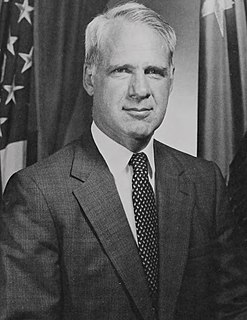A Quote by Ted Deutch
Beyond a power play by the oil industry, there is no conceivable explanation for barring courts within any state from considering cases related to oil leases and energy production off its own coastlines.
Related Quotes
Bitumen is junk energy. A joule, or unit of energy, invested in extracting and processing bitumen returns only four to six joules in the form of crude oil. In contrast, conventional oil production in North America returns about 15 joules. Because almost all of the input energy in tar sands production comes from fossil fuels, the process generates significantly more carbon dioxide than conventional oil production.
The oil industry is a stunning example of how science, technology, and mass production can divert an entire group of companies from their main task. ... No oil company gets as excited about the customers in its own backyard as about the oil in the Sahara Desert. ... But the truth is, it seems to me, that the industry begins with the needs of the customer for its products. From that primal position its definition moves steadily back stream to areas of progressively lesser importance until it finally comes to rest at the search for oil.
There's a huge misconception that it's all about the oil, and the truth is there's actually not much oil left in Abyei. The misperception arose because when the peace agreement was signed in 2005, Abyei accounted for a quarter of Sudan's oil production. Since then, the Permanent Court of Arbitration in The Hague defined major oil fields to lie outside Abyei. They're in the north now, not even up for grabs, and they account for one percent of the oil in Sudan. The idea that it's "oil-rich Abyei" is out of date.
Speculation in oil stock companies was another great evil ... From the first, oil men had to contend with wild fluctuations in the price of oil. ... Such fluctuations were the natural element of the speculator, and he came early, buying in quantities and holding in storage tanks for higher prices. If enough oil was held, or if the production fell off, up went the price, only to be knocked down by the throwing of great quantities of stocks on the market.
The transition from coal, oil, and gas to wind, solar, and geothermal energy is well under way. In the old economy, energy was produced by burning something - oil, coal, or natural gas - leading to the carbon emissions that have come to define our economy. The new energy economy harnesses the energy in wind, the energy coming from the sun, and heat from within the earth itself.
Government, not the oil industry, is the biggest 'profiteer' from oil. And it uses the tax revenue to expand its own authority at the expense of the individual, as it does with an endless number of other industries - including electric power, coal, lumber, pharmaceuticals, automobiles, aircraft, and agriculture. The Statist's intrusion to the free market is boundless.
































